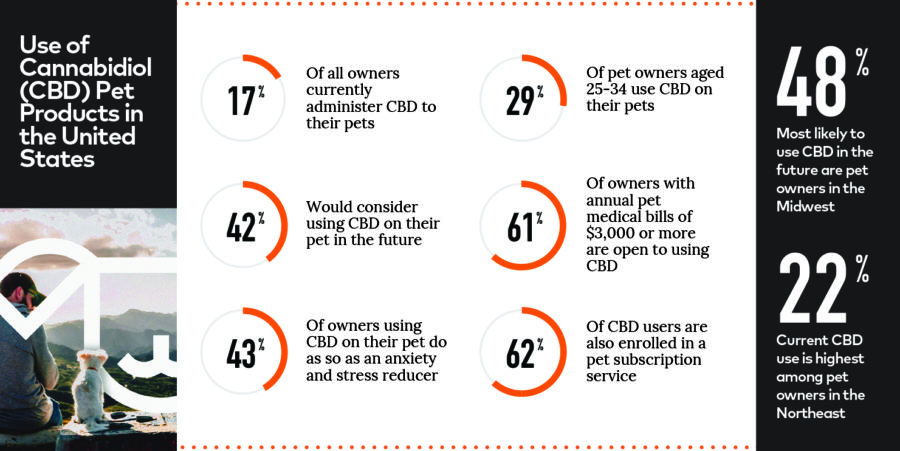New decade, new buying habits! Recent research shows how pet parents are spending their money. Hint: a lot of them are buying CBD for their fur babes.
A recent in-depth study conducted by Bigeye revealed how animal parents in the US spend their money, and what influences them into buying pet products and services.
Here are some highlights:
- Veterinary care (36%) and grooming (24%) top the most commonly-purchased services.
- 43% of study participants are currently using CBD products to alleviate anxiety and stress in their animals.
- 25% have insurance for their animals, with younger people (aged 25 to 34) significantly more likely to have pet health insurance (40%) than those aged 35 to 44 (25%).
- When it comes to deciding what to feed their animals, almost half of all participants (49%) look to recommendations from their veterinarians.
Backed by research from over 780 animal parents across the country, the report also revealed some noteworthy stats about CBD use in animal companions (see graphic below).

“As CBD oils and supplements continue to become increasingly popular in human use to help treat pain, anxiety, and sleep disorders, it’s no surprise that this ‘natural’ alternative to prescription medication is also being considered to treat pets by a significant number of pet owners,” says Adrian Tennant, VP, Insights at Bigeye. “Major players in the pet care industry are waiting for the FDA and FTC to determine a path toward full legalization. Once that happens, we could see sales of traditional pharmaceuticals designed for pets cannibalized by CBD-based alternatives.”








